
New sanctions, special tribunal for Putin, Ukraine’s accession to the EU. Results of the Ukraine-EU summit
Our country participated in the EU-Ukraine Summit as an EU candidate for the first time, and this time, it has definitely been said that Ukraine will become a member of the European community. The high representatives of the EU, however, did not provide a clear answer to the question of when it will happen. At the same time, the most important thing for us is that there are no longer any “ifs” or “buts” there.
In addition to the summit, a joint meeting of the European Commission and the Ukrainian government took place, where a number of important economic decisions were made. Ursula von der Leyen, President of the European Commission, 16 European commissioners, as well as Charles Michel, President of the European Council, visited Kyiv to attend the events. The decisions that were made will help Ukraine restore its capacity and modernize in the future.
What agreements were reached
“Ukraine will move towards becoming an EU member,” announced Ursula von der Leyen at the meeting with the Ukrainian government. She emphasized that Ukrainian farmers and industry are developing by trading with the EU thanks to the Solidarity Lanes, which facilitate exports from Ukraine.
Therefore, the priorities have been determined as trade and economy, which is a good sign, as the EU is showing faith in Ukraine being able to stand strong and develop as a European economy.
On February 2, Ukraine signed an agreement with the European Union on participation in the Single Market Programme for a period of 7 years and with a budget of EUR 4.2 billion. Supporting and developing competitiveness of Ukrainian business is one of the integral components of the program. In addition, renewable energy was also a subject of discussion: Ukraine and the EU signed a Memorandum of Understanding on a Strategic Partnership on Biomethane, Hydrogen and other Synthetic Gasses. The European Commission also invited Ukraine to the EU Energy Platform to purchase gas together and decided to send additional 2,4000 electricity generators.
Along with that, Ukraine received a complex package of facilities for rebuilding, as per the resolution of the European Parliament. The EU is allocating EUR 500 million in military assistance (7th package) and EUR 45 million for civilian aid. This kind of support will help facilitate economic growth in Ukraine after the war.
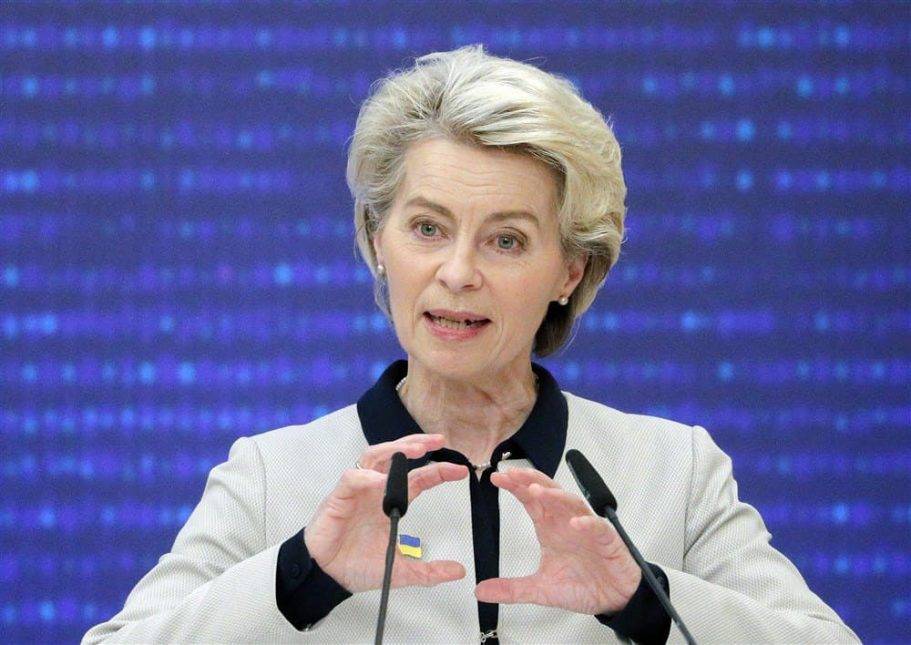
Ursula von der Leyen also announced the allocation of the first million euros under the Fast Recovery Plan.
She also promised that the 10th package of sanctions against Russia would be approved by 24 February 2023. At the same time, the Europeans are already stressing the necessity of introducing sanctions against Belarus.
“Russia is paying a heavy price, as our sanctions are eroding its economy, throwing it back by a generation. By 24 February, exactly one year since the invasion started, we aim to have the tenth package of sanctions in place. The losses (for Russia – ED) will amount to 10bn euros,” stated von der Leyen.
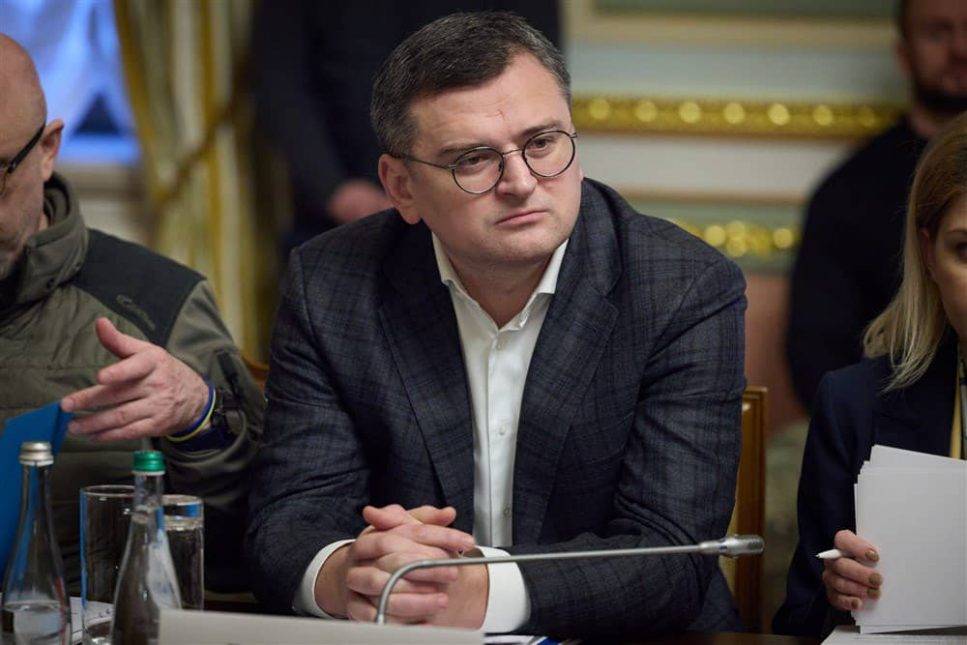
At the same time, Ukraine has gotten a clear decision – a written consent of the EU to criminally prosecute Russia for its crimes. In the joint statement, the EU supported creation of a mechanism that will help convict Russia for the crime of aggression. In other words, this is about creating a body that will punish Russia’s top leadership. In this respect, Ukraine emphasized its preference for establishing a Special Tribunal.
The EU also agreed to work towards the use of Russia’s frozen assets to support Ukraine’s reconstruction.
It is specified that Russia must leave Crimea and other Ukrainian territories occupied by Russia. The joint statement says that the EU supports the peace formula of President Zelenskyy, and therefore will not make any concessions at the expense of Ukrainian land.
Also, the EU agreed to maintain the right to shelter for Ukrainians not only for the war, but also post-war period.
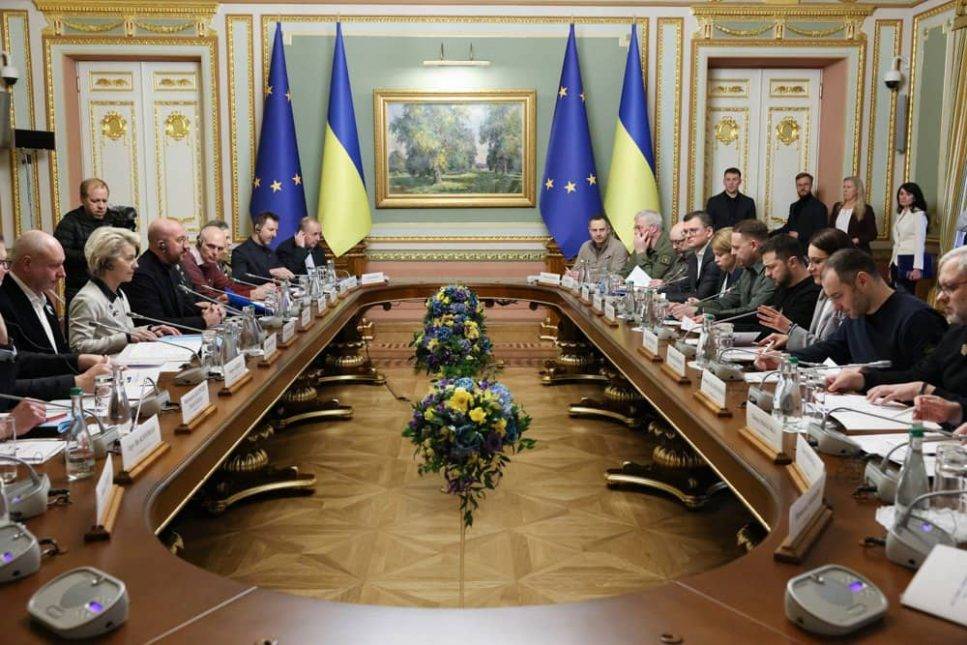
What Ukraine achieved
On February 3, the European Commission published an analytical report on Ukraine’s capacity to assume the obligations of EU membership. It is important to keep in mind that the report is based on the data as of June 2022.
In terms of progressive results, the document points to Ukraine’s good level of readiness in the spheres of customs control, energy policy, foreign relations, specifically foreign commercial relations.
Ukraine also has a good level of readiness in terms of security and defence policies. The European Commission positively assesses cooperation between Ukraine and the EU in fighting cyber threats and disinformation. At the same time, Ukraine has yet to ratify the Rome Statute of the International Criminal Court.
According to our partners, Ukraine is at an early stage of preparation for implementing the EU acquis in the spheres of environment and climate change, agriculture, social policy and employment.
Regional policy, healthcare and consumer protection are at a more developed stage. Ukraine has a certain level of readiness in the sphere of taxation, in particular there is a visible progress in aligning VAT laws with EU legislation. The EU believes that Ukraine is moderately ready in the spheres of economic and monetary policies. In this area, the law on the National Bank only partially aligns with the EU procedures.
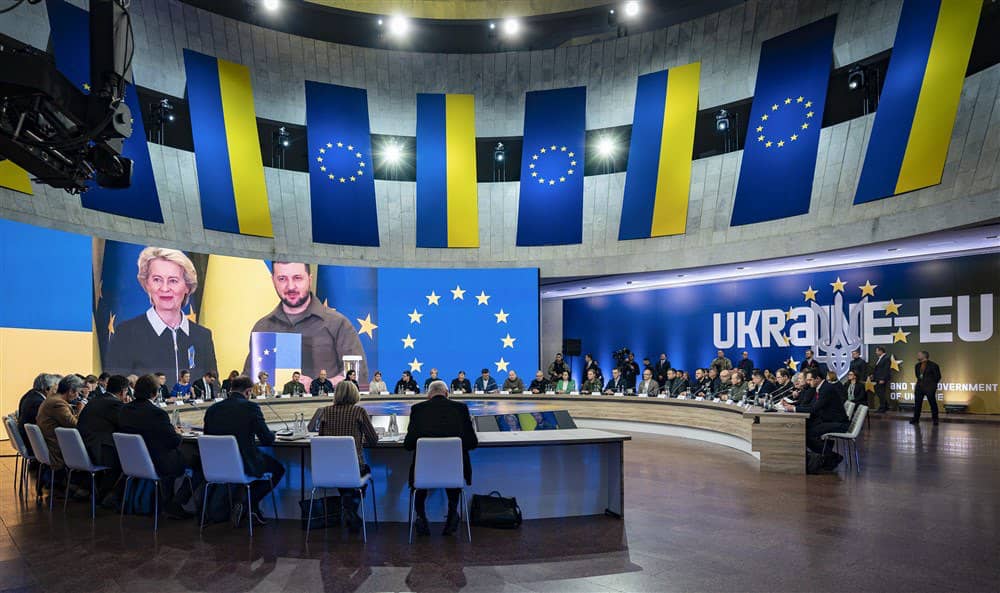
Also, the so-called industrial visa-free regime (Agreement on Conformity Assessment and Acceptance of Industrial Products (ACAA) was announced as a priority. The agreement removes the need for additional certification for the safety of industrial goods and, therefore, speeds up trading. At the same time, the government of Ukraine and the European Commission still need to work next year to finalize the industrial visa-free agreement.
In the joint statement, the EU reiterated the need for the “comprehensive and consistent implementation of judicial reforms, in line with the recommendations of the Venice Commission, including the reform of the Constitutional Court and the selection procedure of politically independent and qualified constitutional judges”.
Considerable progress was noted in ensuring the independent and effective operation of the anti-corruption institutions and on alignment of Ukraine’s media legislation with the EU audio-visual media services acquis. The EU and Ukraine reiterated their commitment to fully respect the rights of persons belonging to minorities, as enshrined in UN and Council of Europe conventions and related protocols.
What Ukraine expects
The short answer is a successful start to the negotiation process on joining the EU. Ukraine officially declared the start of the preparation for the negotiations. The EU and Ukraine are expected to gradually agree their positions on all 35 chapters (and 6 clusters) of the membership agreement. Ukraine is now starting the so-called self-screening – the process of checking Ukrainian legislation for compliance with EU law.
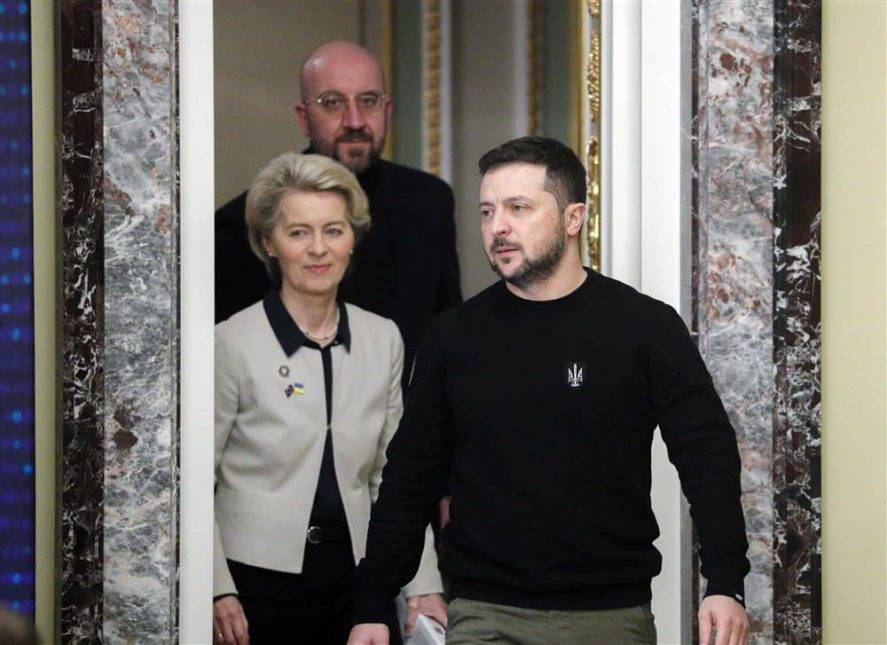
At the same time, on February 2, the European Parliament passed a resolution calling on the EU (more specifically the European Commission) to prepare for negotiations on Ukraine’s accession to the EU. The European Commission will regularly monitor progress on each chapter of the agreement, providing appropriate recommendations.
Overall, the recommendations are related to the Copenhagen criteria that include stable institutions, a functioning market economy, and the ability to commit to membership. At the same time, the EU must be able to integrate the new member.
Ukraine presented the results of the “first homework” – progress on 7 reforms that were recommended after the country received the candidate status on June 23, 2022. Oral assessment of Ukraine’s implementation of the reforms for opening the EU membership negotiations will be released in spring, but the official one (with a written report) – only in autumn 2023.
The recommendations included the laws on selection of judges of the Constitutional Court and judicial reform, the fight against corruption, harmonization of the legislation on media, as well as ensuring the rights of national minorities. Civil society representatives assessed Ukraine’s progress at 6 out of 10, according to the expert study titled Candidate Check-3 published on February 1 by the New Europe analytical centre.
According to expert findings, Ukraine has achieved most progress in improving the laws on media and national minority rights. Nearly after a year of inactivity, the Supreme Council of Justice renewed its operation, although in order to fully meet the requirements in this area, 6 more SCJ members need to be appointed and candidates to the High Qualification Council of Judges (HQCJ) need to be selected. A lesser progress was achieved in the fight against corruption and money laundering.
At the same time, Ukrainian officials expressed hope that Ukraine could join the EU in the near future, possibly in the next two years.
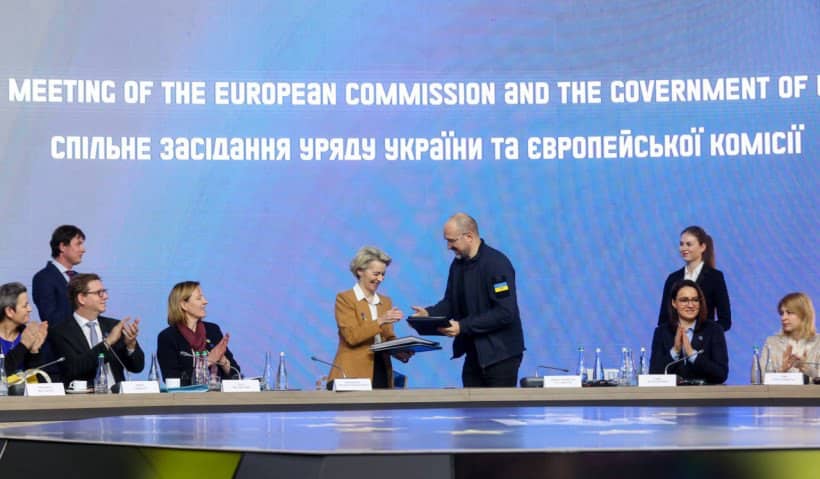
“When I say two years, I mean that we will do our best to put the report that we are ready on the table,” stated Prime Minister Denys Shmyhal.
The President of the European Commission Ursula von der Leyen did not focus on the terms, only saying that official negotiations could begin soon.
“Indeed, there will be an oral report in spring, but the big goal is to show the progress and to show the track record of the progress in the reforms to the written enlargement report in fall,” the EC President stated.
Is that enough?
It is true that the speed at which Ukrainians prepared for the candidacy, making economic and military breakthroughs at the same time, is simply immeasurable for Europeans. However, many EU officials believe that Kyiv’s path to full membership may take years, and in the meantime, the EU needs to cope with the expectations of other EU candidates, particularly the Balkans.
The European representatives refused to provide specifics on when Ukraine will be able to join the EU, cautiously noting on “impressive progress”
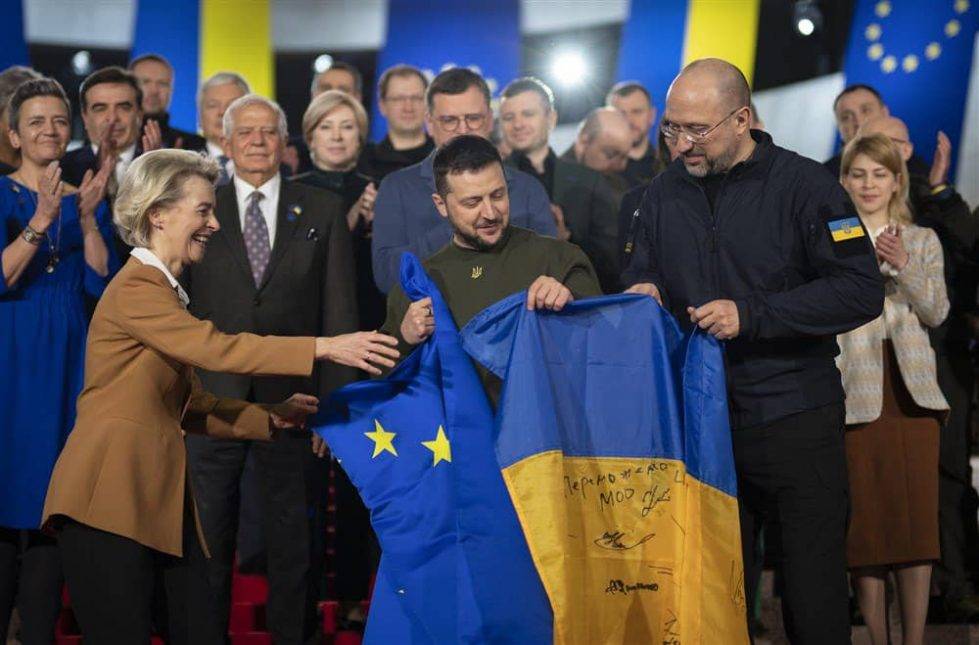
Media, Publications
-
Respect and recognition
-
Eurobarometer shows strong support for Ukraine
-
New EU Strategy for the Black Sea Region
-
EU and UNDP in Ukraine transfer equipment to Lubny Medical College and Lubny City Primary Health Care Center
-
Happy birthday, invincible capital!
-
Justice matters most when people can feel it working